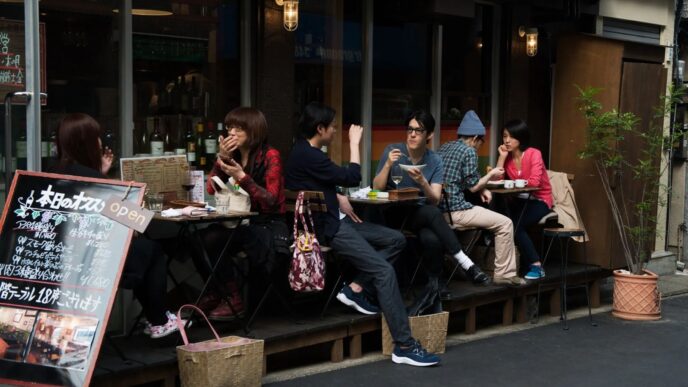Introduction
When Tokyo 2020 Summer Olympics (held in 2021) embarked on its global bid, one of the phrases that captured international attention was omotenashi. The Japanese host‑nation team used this term to showcase not only their capacity to host a global sporting event, but also to introduce a deeply rooted cultural ethos of hospitality, care and mindfulness. According to the Japan National Tourism Organization, omotenashi means “to wholeheartedly look after guests”.
In this article we’ll explore what omotenashi really means, how it came into prominence through the Olympic bid, and how the concept continues to influence Japanese society and global business.
Although often translated simply as “Japanese hospitality”, omotenashi goes deeper than service in the usual sense. Here are the key dimensions:
● Selfless service – Omotenashi emphasises serving without the expectation of reward or recognition. In other words, the host anticipates and fulfils the guest’s needs, not because they’ll be paid extra or tipped, but because providing that care is part of the ethos.
● Attention to detail and anticipation – Rather than waiting for a guest’s request, hosts anticipate what the guest might need: a coat check, a hot towel, an umbrella before rain. These small gestures add up.
● Sincerity and transparency – The Japanese word breakdown sometimes cited is omote + nashi (表 + なし) meaning “no façade” or “nothing hidden”. The idea: openness, authenticity, no “public face” hiding true intentions.
● Deep cultural roots – This concept traces back to practices such as the tea ceremony (茶道, sado), where every gesture is geared toward making the guest feel honored and comfortable.
In short: Omotenashi is service, yes—but elevated: service as a genuine expression of respect, care, and hospitality, embedded in culture rather than transaction.
How it became part of the Olympic bid narrative
In September 2013, during the International Olympic Committee (IOC) General Assembly in Buenos Aires, Japanese presenter Christel Takigawa used “o‑mo‑te‑na‑shi” in her speech to the IOC to describe Japan’s unique way of welcoming the world.
She said: “We will offer you a unique welcome. In Japanese, I can describe it in one unique word: omotenashi.”
That moment helped internationalise the term and associate it with Japan’s brand of hospitality for the forthcoming Tokyo Games.
For many foreign observers the word resonated because it encapsulated something culturally distinctive while simultaneously articulating Japan’s readiness to host the world. As one article put it: “The term gained worldwide attention… when Christel Takigawa eloquently explained the concept… reinforcing Japan’s global image as a country that values precision, courtesy and excellence.”
So in effect, omotenashi became part of the national narrative for Japan’s Olympic‑hosting bid—a way to say: we don’t just have infrastructure, we have heart.
Examples of Omotenashi in everyday life
You don’t need to be in a luxury setting to see omotenashi at work in Japan. Some everyday manifestations:
● At the entrance of a shop or restaurant you’re greeted with “irasshaimase” and a slight bow—just as you enter. The staff’s immediate attention signals a welcome.
● On a train, a cleaning crew bows to passengers and organizes seats or removes trash quickly and quietly: part of the culture of preparing the space for the guest (i.e., the passengers).
● At a ryokan (traditional inn), the host may bring tea, change slippers, arrange the tatami mat in a way that makes the guest feel comfortable—all without being asked. These things reflect forethought.
● For guests from abroad, certain hospitality services will anticipate cultural needs: multilingual signage, clean and convenient facilities, even small touches like translators or special dietary accommodations.
These examples reveal that the essence of omotenashi is less about grand gestures and more about mindful care, anticipation, and making the guest feel truly seen and respected.
There are several reasons why omotenashi remains relevant for Japan—and holds lessons for businesses and service sectors globally.
1. Tourism & Global Visitors
Japan continues to be a highly ranked destination for international travellers; part of that appeal is the feeling of safety, cleanliness, courtesy, and genuine hospitality. Omotenashi is integral to that experience.
2. Customer service & business culture
Japanese companies often integrate the spirit of omotenashi into their service models—not just in hospitality, but in retail, manufacturing, and organisational culture. For instance, the voice of “what will delight the customer” rather than simply “what will satisfy them”.
3. Cultural diplomacy and national branding
By showcasing omotenashi in the Olympic context, Japan projected an image of not just efficient infrastructure, but of warmth and respect for human dignity. That can matter for a country seeking to deepen its role globally.
4. Human‑centric values in an automated age
Even as service industries become more automated, the value of human touch, anticipation, and empathy remains high. Omotenashi reminds us that technology may optimise efficiency, but human care creates connection.
What India (and others) can learn
For marketers, service‑designers, hospitality professionals—including in India—the omotenashi concept offers a few take‑aways:
● Think before the guest speaks: anticipate needs rather than only respond.
● Cultivate sincerity: hospitality that feels transactional lacks depth; one that comes from an authentic desire to serve stands out.
● Focus on details: not just big gestures, but small acts that accumulate into a memorable experience.
● Embed hospitality into culture: if service becomes a mindset rather than a checklist, it becomes sustainable and distinctive.
● Remember guest equality: Omotenashi often emphasises host‑guest as equals, with mutual respect—less of serving “downward” and more of welcoming “alongside”.
In the bid for the Tokyo Olympics, Japan offered the world not just venues and infrastructure, but a philosophy: omotenashi. While the word entered the global lexicon via sport, its significance lies far beyond. It captures a culture of thoughtful, selfless hospitality that values human connection, respect and care.
For many travellers and service recipients, the feeling of being truly welcomed—to have one’s needs anticipated, one’s comfort valued—makes a lasting impression. In an era where many interactions become commoditised, omotenashi reminds us that the human element still matters.
If your next trip or business venture involves Japan, or if you’re in the service business anywhere in the world, you might pause and ask: What would genuine omotenashi look like for the person I’m serving?
Originally written by: Lifestyle Desk

















